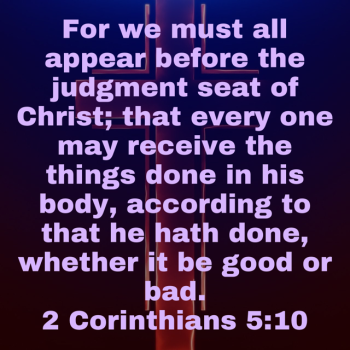The worship of Jesus as a divine figure is a theme that emerges in early Christian writings, particularly in the New Testament, which reflects the beliefs of the early Christian communities. However, to locate this concept in ancient writings, it's essential to examine both scriptural texts and other early Christian literature. Here’s an overview of where this idea appears:
1. New Testament Writings
Gospels:
Matthew 2:11: The Magi worship the infant Jesus, bringing him gifts of gold, frankincense, and myrrh. The Greek word used here is "προσκυνέω" (proskyneō), which often implies worship or reverence, especially in a religious context.
Matthew 14:33: After Jesus walks on water, the disciples worship him, saying, “Truly you are the Son of God.”
Epistles:
Philippians 2:9-11: Paul writes that God exalted Jesus and gave him the name above every name, so that "at the name of Jesus every knee should bow, in heaven and on earth and under the earth, and every tongue confess that Jesus Christ is Lord, to the glory of God the Father."
Hebrews 1:6: Referring to Jesus, it says, "And again, when God brings his firstborn into the world, he says, ‘Let all God's angels worship him.’" This passage explicitly describes angelic worship of Jesus, indicating his divine status.
Revelation:
Revelation 5:11-14: In a vision, John sees a scene where every creature in heaven and on earth worships both God the Father and the Lamb (a symbol for Jesus), proclaiming their worthiness to receive blessing, honor, glory, and power.
2. Early Christian Writings
Ignatius of Antioch (c. 35–107 AD): In his letters, Ignatius frequently emphasizes the divinity of Christ and the necessity of worshiping him. For example, in his Letter to the Ephesians (Chapter 7), Ignatius refers to Jesus Christ as "our God" and underscores his divine nature.
Justin Martyr (c. 100–165 AD): In his First Apology, Justin argues for the worship of Jesus as divine, noting that Christians worship Jesus as "the Word" and "the Son" of the true God. He contrasts this with the worship of idols in pagan religions, positioning Christian worship as the correct devotion.
Pliny the Younger (c. 61–113 AD): While not a Christian himself, Pliny's letter to Emperor Trajan mentions that Christians "sing hymns to Christ as to a god." This non-Christian source provides early evidence of the practice of worshiping Jesus in the Christian community.
3. Sub-Apostolic and Apostolic Fathers' Writings
The Didache (c. 50-120 AD): While not explicitly commanding the worship of Jesus, the Didache is an early Christian manual that reflects the liturgical and ethical practices of the early Christian community, which centered on Jesus’ teachings and included prayers in his name, indicating a form of reverence that borders on worship.
Polycarp (c. 69–155 AD): A disciple of the Apostle John, Polycarp in his Letter to the Philippians refers to Jesus as “the eternal High Priest” and implies his divine nature by the honor and reverence given to him.
4. Gnostic Texts and Other Non-Canonical Writings
Gospel of Thomas: While this Gnostic text does not explicitly promote the worship of Jesus in the same manner as the canonical gospels, it portrays Jesus as a divine figure imparting secret wisdom, indicating an elevated status for him within certain early Christian sects.
The Ascension of Isaiah (c. late 1st to early 2nd century AD): This non-canonical text describes a vision in which Isaiah sees the worship of Jesus (referred to as the Beloved) in the highest heavens, alongside God.
The worship of Jesus as a divine figure is well-attested in early Christian writings, especially within the New Testament and the writings of the Apostolic Fathers. These texts reflect the early Christian belief in Jesus’ divinity and the appropriateness of worshiping him, which would later be formalized in the doctrines of the Trinity and the Incarnation by the early Church.
Confusion abounds, with strange titles and appellations being added to the name of YHVH, and the inconsistent belief that some hold—that Jesus ought not to be worshipped at all—is a deviation from the truth as it is clearly written in the Scriptures.
Scriptural Evidence:
Isaiah 9:6: "For unto us a child is born, unto us a son is given: and the government shall be upon his shoulder: and his name shall be called Wonderful, Counsellor, The mighty God, The everlasting Father, The Prince of Peace."
John 1:1, 14: "In the beginning was the Word, and the Word was with God, and the Word was God... And the Word was made flesh, and dwelt among us, (and we beheld his glory, the glory as of the only begotten of the Father,) full of grace and truth."
John 20:28: Thomas answered and said unto him, "My Lord and my God."
Philippians 2:9-11: "Wherefore God also hath highly exalted him, and given him a name which is above every name: That at the name of Jesus every knee should bow, of things in heaven, and things in earth, and things under the earth; And that every tongue should confess that Jesus Christ is Lord, to the glory of God the Father."
Hebrews 1:6: "And again, when he bringeth in the firstbegotten into the world, he saith, 'And let all the angels of God worship him.'"
Revelation 5:13-14: "And every creature which is in heaven, and on the earth, and under the earth, and such as are in the sea, and all that are in them, heard I saying, 'Blessing, and honour, and glory, and power, be unto him that sitteth upon the throne, and unto the Lamb for ever and ever.' And the four beasts said, Amen. And the four and twenty elders fell down and worshipped him that liveth for ever and ever."
These passages affirm the scriptural basis for worshipping Jesus, demonstrating that it is in alignment with the truth revealed in the Scriptures.


